The Ultimate Guide to Coach
Writers
About The Author
Siddharth Rajsekar
Founder - Internet Lifestyle Hub
Siddharth Rajsekar aka Sidz is the founder of the Internet Lifestyle Hub, one of the world’s largest communities for coaches, trainers, teachers, and experts with over 20,000 members.
As an acclaimed lifestyle entrepreneur, Business World's 40 under 40 award winner, and international speaker, Siddharth has trained over 500,000 people in the last 10 years. Recognized as one of India’s leading and sought-after “info-marketing” specialists, Siddharth has worked closely with renowned International experts like Robert Kiyosaki, T Harv Eker, Tony Robbins, Brian Tracy, and Jack Canfield.
After running many multi-million-dollar online campaigns for companies and helping people make money online in the last 10 years, Siddharth has developed and perfected the Freedom Business Model. The Freedom Business Model focuses on helping people take their expertise online and building a super-profitable digital coaching business, without an office or employees.

His mission is to reform the education and employment system by building a new breed of Digital Leaders, based on the core principles of humanity and simplicity and by enhancing one’s social skills, happiness, and overall productivity.
He is the author of this book, “You Can Coach” which decodes all the steps for experts to successfully PLAN, LAUNCH, and GROW a digital coaching business to six figures a month. Wearing multiple hats, Siddharth is a husband of a loving wife, a father of 2 boys, a minimalist, futurist, spiritualist, a YouTuber who has published over 300 videos, as well as a podcast host!
1. Are You Cut Out To Be A Writing Coach?
In the last 20 years, with the rise of digital technologies and changes in consumer behavior, the publishing industry has grown by a whopping 40%. More books are being written now because everyone has a computer and can write a book; it doesn't have to be profoundly new. It just has to present a personal point of view or a new understanding of these things. If you have a story to tell and a passion for writing, your lack of experience or training should not hold you back.
There are several reasons why more books are being written now than ever before:

Increased literacy rates:
The global literacy rate has shot up, and more people can read and write, which encourages more writers to write and publish their work.

Advances in technology:
The digital revolution has made it easier for writers to self-publish their work, particularly in genres like nonfiction, self-help, and memoir. Writers are free to share their thoughts across hard-copy books, ebooks, and audiobooks. There has been a huge jump in nonfiction, especially self-help books, where writers share their expertise.

Greater access to information:
With the rise of the internet, readers can find and purchase books that interest them. Writers can research and gather information for their books, and this has also made it easier for readers to find and purchase books that interest them.

The world has changed:
We have become more diverse and inclusive, and this has created opportunities for writers from different backgrounds and perspectives to share their stories and experiences.
Jack Canfield, one of the legends in the personal development and coaching space, has truly transformed lives and sold more than 3 million copies of his books worldwide, starting with the Chicken Soup for the Soul series and Success Principles.
In an interview, Jack Canfield shared these ideas
These are the reasons to write a book:

A book gives you credibility
For example, a lot of dentists are expert orthodontists, who can provide a great smile, but only one dentist wrote a book called "How to Have a Million Dollar Smile.” A book can build a brand and open doors to immense opportunities. So if you are known as an authority, you can become a high-level consultant because you've got the tag of a writer.

A book can be shared
You're giving people the ability to take you home and reinforce what they learned because it goes by fast when doing a live presentation. They can share it with their family because we always want them to think the same way; you do so that everyone's on the same page.

A book creates impact
If you write a book, hold a talk about it in Mumbai, and sell the book there, someone in Goa, Chennai, Bangalore, or Delhi could read it. You've had an impact on people that you couldn't have had an impact with otherwise. The message of the biggest writers, like Napoleon Hill, the writer of Think and Grow Rich, is reaching out to thousands of people, even after he's gone.
However, the process of writing a book requires a lot of time, effort, dedication, and skill, and not everyone is equipped to handle it. To write a book, you need to have a good understanding of the writing process, the structure of a book, the genre you're writing in, and the audience you're writing for.
While both writing coaches and editors work with writers to improve their writing, they have different roles and approaches.
A writing coach typically works with a writer on a broader level to develop their skills and achieve their goals. A writing coach may help with brainstorming, outlining, developing concepts and strategies, and guiding the overall writing process. They often work with writers over a longer period of time, and provide ongoing support and feedback throughout the writing process. A writing coach can help a writer develop their craft and reach their long-term writing goals.
An editor, on the other hand, focuses more on the technical aspects of writing, such as grammar, punctuation, syntax, and clarity. They may work with a writer to revise and refine specific passages, pages, or the overall manuscript. Editors are typically brought in at a later stage in the writing process, after the manuscript has been drafted, and will polish and refine the finished product.
For writers, finding the right coach can be a game-changer for their writing career. A coach can offer guidance, feedback, and support that can help them develop the required skills, overcome obstacles, and reach their goals.
Influence is the "currency" of the digital age.
Writers will be able to impact more people if they have the power to influence them to create a positive change in the world.
Teachers in school and college have authority over their subjects, but they have a small circle of influence. They have a deep impact and influence on larger groups and are well-known and respected for their particular skill set.
Industry specialists are the ones who are talented, but not well-known, and probably not people-friendly. They are educators, not entertainers, but they lack the know-how to pen a book.
Celebrities are the ones who have the largest circle of influence, and they can bring about a major shift in the world. People like Gary V., Steve Jobs, and Elon Musk created major shifts in the world.
A good writing coach can inspire such writers by helping them visualize their emotions when they succeed.

The questions to ask a budding writer are
What do you want to achieve?
What’s stopping you from achieving it?
This is how I can help you solve it.
Here’s who I’ve helped in the past.
A writing coach puts in a lot of hard work, dedication, and commitment to helping others achieve their goals. But it's also a fulfilling and rewarding profession that allows you to make a real difference in people's lives.
To be a successful writing coach, possessing the necessary knowledge is one part of the game, but also being able to represent that knowledge in a way that can create or make a difference in the writer receiving that knowledge is a different skill altogether.
A writing coach (or book coach) is a professional mentor for writers at any stage of the writing process, whether they are starting from scratch or preparing to pitch or publish.
A good coach should have knowledge and expertise in the writing industry. They should be familiar with the different genres, publishing trends, and marketing strategies that can help writers succeed. A coach who has experience in the publishing industry can provide valuable advice on the complex world of publishing, including how to deal with agents, pitch to publishers, and market your book.
Most coaches want to make a difference. But it's important to let people know that you have the processing skills to help people deal with their stuck places and that you will help them identify and release limiting beliefs.
The two things that stop people more than anything are that they either have limiting beliefs that they're not aware of or they have fear.
Sometimes it's just a lack of knowledge, a lack of know-how, a lack of skill sets, or a lack of a proper mindset.
One needs to be good at those things to help people break through and have these transformational moments. If, as a coach, you ask your students a series of questions that lead them to an "aha" moment, you will have achieved your goal.

Walk the talk: You don’t have to be an internationally bestselling writer yourself to become a coach. If you have successfully understood the principles that you are teaching, you are allowed to talk with authority about them. You have to be living the truth that you are coaching about. So if you're teaching people, they need to be 100 percent responsible for their lives. Not blame, not complain, and not make excuses. You must be living that because your vibration, your truth, will be transmitted to others as you speak. If you're just teaching something you read about in a book, that comes through to people. They can tell that.
You should be learning as you're teaching, and also living, as much as possible, with that integrity. People can pick up on someone who's not real. Tony Robbins, the life and business strategist, advises CANI - constant and never-ending improvement. Constantly watch YouTube videos, TED talks, read books,
If you know the combination of a lock, it doesn't matter if you're black, white, young, old, went to university, or weren't smart. The lock has to be opened with a set of numbers, and if you do them the right way, in the right order, and at the right time, you can unlock this thing called success.
Empathy and Understanding: One of the most important qualities of a coach is empathy and understanding. As a coach, you should learn how to walk people through a sequence that includes getting in touch with their life purpose. A coach should be able to put themselves in their client's shoes and understand their struggles, fears, and aspirations. A good coach will take them through the sequence of clarifying their life purpose, creating a vision that's aligned with fulfilling that purpose, setting specific goals, and learning about affirmations and visualization. They should be able to provide a safe space for writers to share their work and ideas without fear of judgment or criticism.
You have to come from a place of service. Your clients shouldn’t have to wonder, "Are you in this for yourself?" "Or are you in this for me?” Aspiring writers will want to know that you really care about them and that you're there to support them in being successful.
A coach for writers should not be teaching something they haven't experienced first. Writing is an art, and it takes time, effort, and dedication to become a great writer. As a coach for budding writers, your role is to guide and mentor them on their journey to becoming successful writers.
Communication Skills: Effective communication is essential for a coach to be able to convey their ideas and feedback to their clients. Be articulate, and learn how to communicate your concepts in a way that resonates with your students. You should be able to take complex ideas and explain them in a very easy-to-understand way using metaphors and stories.
A coach should be able to provide constructive criticism in a way that is clear, respectful, and actionable. They should also be able to listen actively to their clients' concerns and questions and provide relevant answers and guidance.
Positive Attitude and Motivation: A coach should have a positive attitude and be able to motivate their clients to overcome obstacles and reach their goals. They should be able to provide encouragement, praise, and support that can boost their clients' confidence and inspire them to keep writing. A coach who can create a positive and motivating environment can help writers stay motivated and on track with their writing.
When you're having failures and the world's not responding as fast as you'd want to all the things you're trying to either do, or market, or sell, or accomplish in the world, how do you keep yourself in action? That's the bigger question. How do you stay motivated when you have setbacks?
Most people are afraid of rejection, so they don't ask for what they need. That's a very important thing, to figure out and work through, but we all have to start somewhere, and you're not going to be perfect when you start.
Positive Attitude and Motivation: A coach should have a positive attitude and be able to motivate their clients to overcome obstacles and reach their goals. They should be able to provide encouragement, praise, and support that can boost their clients' confidence and inspire them to keep writing. A coach who can create a positive and motivating environment can help writers stay motivated and on track with their writing.
When you're having failures and the world's not responding as fast as you'd want to all the things you're trying to either do, or market, or sell, or accomplish in the world, how do you keep yourself in action? That's the bigger question. How do you stay motivated when you have setbacks?
Most people are afraid of rejection, so they don't ask for what they need. That's a very important thing, to figure out and work through, but we all have to start somewhere, and you're not going to be perfect when you start.
"Every master was once a disaster"
- Alex Mendoza
For writers, being in a learning space is hard on the ego. The ego believes it is perfect now, but writers have to be willing to be learners and make mistakes along the way.
Getting good coaching, and good training will help writers avoid a lot of pitfalls. Working with the masters is a faster way to learn. You've seen these books where it says it takes 10,000 hours to become a master. If you work with masters instead of working alone, you can become a master more quickly than that. It is a sound plan for budding writers to put themselves at the feet of other masters and see how they're teaching, learn their content, and make it their own by using it correctly.
To be a successful coach for writers, one should be familiar with all the genres of writing. For this book, we will not be discussing genres like novels, poetry, or drama.
You can help your clients make informed decisions about their writing and develop the skills they need to succeed.
Self-help, how-to, and coaching books are all popular genres in the field of personal development. These types of books provide readers with practical advice, strategies, and tips to improve various aspects of their lives.
Self Help Books
Self-help books provide readers with tools and strategies to either improve their personal lives, relationships, or career prospects. These books often focus on topics such as confidence, motivation, happiness, and success. Some popular examples of self-help books include "The Seven Habits of Highly Effective People" by Stephen Covey, "The Power of Now" by Eckhart Tolle, and "Think and Grow Rich" by Napoleon Hill.
Self-help books aim to inspire readers to take action and improve their lives. They may offer practical exercises, affirmations, and goal-setting strategies to help readers achieve results.
How To Books
How-to books are instructional guides that provide step-by-step instructions on how to accomplish a specific task or activity. For example, a marketing expert may write a book sharing his knowledge on lead generation. The cost can be kept low, and they can ship that physical copy to their students, potential students, and leads so that they can buy their products and services later. These books can cover a wide range of topics, from cooking to guides on digital marketing. The goal of how-to books is to provide readers with practical skills and knowledge to achieve a particular goal or outcome. They may include illustrations, diagrams, and photographs to make the instructions easier to follow.
Coaching Books
Coaching books are designed to provide readers with insights and guidance on how to achieve specific goals, such as career advancement, personal growth, and relationship improvement. These books often include exercises, assessments, and worksheets to help readers clarify their values, strengths, and goals. Some popular examples of coaching books include "The Life-Changing Magic of Tidying Up" by Marie Kondo, "The 5 Love Languages" by Gary Chapman, and "The One Thing" by Gary Keller.
Coaching books aim to help readers achieve their full potential by identifying and addressing areas for improvement. They may offer insights into limiting beliefs and behaviors, strategies to overcome obstacles, and tips to build confidence and resilience.
Writing Style
The best style for self-help, DIY, and coaching books is engaging, informative, and actionable. The writing style should be clear, concise, and easy to understand without any unnecessary jargon or technical language. The writer should strive to communicate their ideas in a way that is accessible to all readers, regardless of their background or level of expertise.
Actionability
The advice and strategies presented in the book should be actionable and easy to implement. Readers should be able to take concrete steps towards achieving their goals and improving their lives based on the guidance provided in the book.
Story Tellling
An effective self-help, DIY, or coaching book should use storytelling to engage the reader and illustrate key concepts and ideas. Stories can be used to create an emotional connection with the reader and to provide examples of how
2. Creating A Curriculum
Today, we’re living in a world where people can Google whatever they wish, and they get thousands of options. Today, people do not lack information. They can spend hours and hours researching on YouTube without finding a solution to their problem.
What people want is a clear-cut path to achieving their goals, and they want it fast. What people will pay you for is not the volume of information, but how simple you can make it for them. How fast can you get them a result?
Before deciding to take action and achieve results, the student must first develop the proper mindset, and to do so, the roadblocks that are holding them back must be removed. This is a list of books that you should recommend to your students.
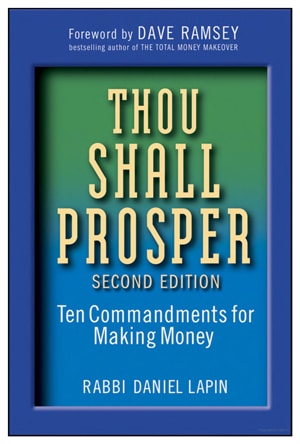
1. Thou Shall Prosper
Ten Commandments for Making Money-by Daniel Lapin. Principles on which Jewish people build wealth while debunking the myths about their reputation. The true principles of wealth creation show that creating true wealth is a spiritual activity if you do it with the right mindset and perspective.
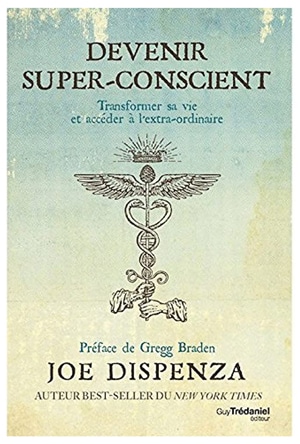
2. Becoming Supernatural
How Common People Are Doing the Uncommon-by Joe Dispenza. Tracking brain frequency and how you can change your life through spirituality. Understanding the link between spirituality and science
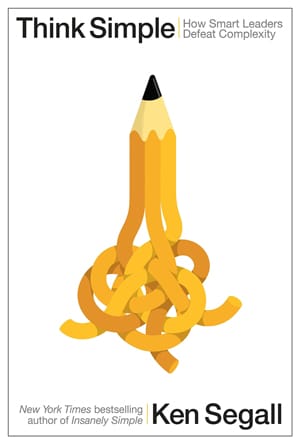
3. Think Simple
How Smart Leaders Defeat Complexity-by Ken Segall. How Steve Jobs used product design, simplicity, consumer experience.
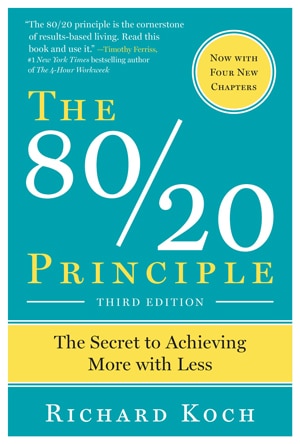
4. The 80/20 Principle by Richard Koch
Pareto's principle is evaluated as per the 80/20 rule. How 20% of your efforts can reap 80% of your results.
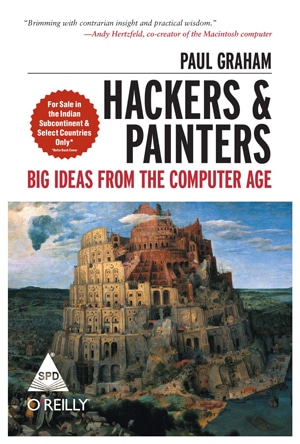
5. Hackers and Painters by Paul Graham
Abstract thinking and coding to do things beyond boundaries. By thinking outside the box, you can bend and break the rules.
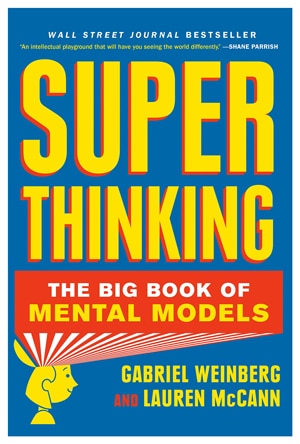
6. Super Thinking
Upgrade Your Reasoning and Make Better Decisions with Mental Models -by Gabriel Weinberg. mental models to think out of the box and better decisions

7. The Membership Economy
Find Your Super Users, Master the Forever Transaction, and Build Recurring Revenue eBook-by Baxter, Robbie Kellman.
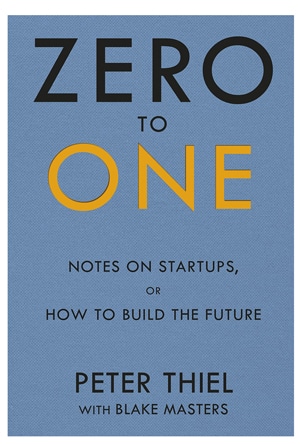
8. Zero to One
Notes on Start-Ups, or How to Build the Future -by Peter Thiel. How to dominate your market with amazing ideas. How to build reachability, and achieve phenomenal growth over the long term to reach out to a large number of people.
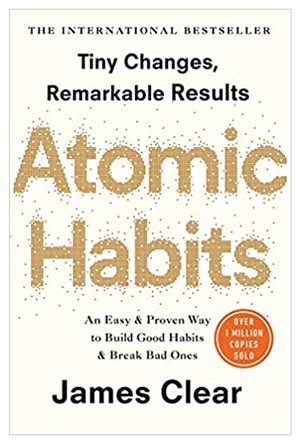
9. Atomic Habits
An Easy and Proven Way to Build Good Habits and Break Bad Ones -by James Clear. Focus and discipline make all the difference

10. Influence, New and Expanded
The Psychology of Persuasion, -by Robert B. Cialdini. Sales, and psychology of conversion. Persuasion, sales, and buying triggers.
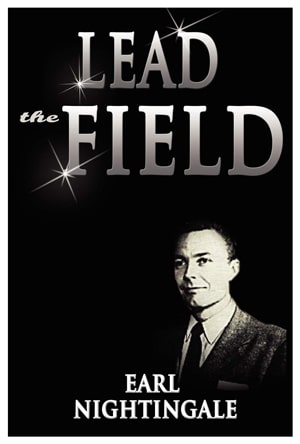
11. Lead the Field by Earl Nightingale
Your market/niche/space and how to position yourself. Leadership and building community for revolutions and movements
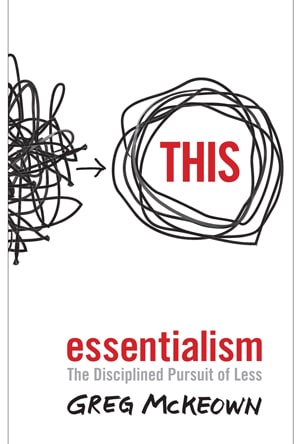
12. Essentialism
The Disciplined Pursuit of Less -by Greg McKeown. Simple living and high thinking. Have less but have the best and you will be free
How to Plan Your Curriculum as a Digital Coach
Click Here to Read more
When you incorporate success stories into your curriculum, they will create mind shifts for the new people who are getting into your student community. They should feel like, "Wow, if this person can do it, I can do it.” That shift is what you must install at the start of your course.
When you’re designing a program or a course for writers, you need to bring your personality into it. When your teaching reflects your personality, people will connect with you.
When people realize that you're not there solely for your profits but for their benefit, that’s when the needle will move on your revenues.
Every part of your curriculum should be a reflection of you. Once more, they get the experience of saying, “Wow, I’m at the right place at the right time.” This is the best customer experience you can hope for. The quality of your product is not what you think of as quality; it happens when your customer feels that they are getting the best value for the money that they’ve invested and they’re able to get the information in a remarkably simple, smooth, and sublime way. When you do this, you don’t have to “market” quality; quality speaks for itself.
This is best seen in Gary V’s book called Jab Jab, Right. The reality is that you must first provide value, then sell. Give value, give value, and then you enroll. A lot of people don't know that, and they're not using social media correctly. When you build a following, you'll have that distinct differentiation, and you can even write a book about it. A lot of people think that they have nothing new to say because everything's been said, but that's not true. Your experience has not been described, which is a good reason to write.
Find role models when you’re designing programs. Only by modeling yourself after some phenomenally successful people in the market will you be able to apply those lessons to your unique flavor.
This will help you deliver immense value to your students. The secret to winning this game is to have the best people in this industry on your radar and model them. Model them rather than simply copy them. Make a list of all the people who are influencers in your micro-niche. Search for them on Google if you don’t know anyone right now. Search for them on YouTube and Instagram, or even a few podcasts.
Once you’ve made a list of those names, then look at their websites. Study how they have structured their programs. Learn how they are framing themselves in their videos. If you need to invest in their programs, please go and do that. Once you invest in their programs, you’ll get a lot of ideas on precisely what they are doing to achieve that kind of success. All you must do is wear the hat of a researcher. Make a list of all the points that make their business work and start modeling them. You can then start applying your touch to that same model, and you’ll start to see results faster than you can ever imagine.
"Design is not just what it looks like and feels like. Design is how it works."
- Steve Jobs
Just go and analyze all of them. If you must spend a whole week doing this, just do it. So, the fastest part of your goal is to find the best and start modeling them.
The sad truth is that a lot of coaches, trainers, and teachers are so convinced they know it all that they are not willing to listen to what the students want. When you can flip the switch within your head, you can start to build better curriculums that are precise and that will create better results when it comes to solving their problems. You may have an ocean of content in your head, but people don’t care about it.
“Don’t try to be original; just try to be good.”
- Paul Rand
For example, you give somebody Google Maps and ask them to learn Google Maps. It’s going to be tough. How can they memorize the location of each place and intersection? All you must do is send them there to understand where they want to go and give them a clear path from point A to point B.
They don’t need to know everything; they just need to get to their destination. It’s as simple as that. It is not about the content; it is about delivering results.
People Who Pay Money, Pay Attention
Russell Brunson experimented and gave away some courses for free to a group of people. When he went to the back-end dashboard to see how many of them finished the course, it was a ridiculously small percentage. On the other hand, he looked at the statistics of the people who paid money and was blown away. For people who had paid money and come into my system, the completion rate was much higher when compared to people who just got in for free. People who spend money pay more attention. People who pay attention act, and people who act get results. So, it’s your moral responsibility as a writing coach to charge people money for your courses; only then will they value your information. Only when there’s a value exchange will people value your knowledge. So, by giving everything away for free, you’re doing a disservice to the marketplace.
When it comes to structured, step-by-step implementation programs, always charge people money for them because only when there’s a value exchange will they value my information.
“When you share your knowledge based on your own experience, it will have true power.”
- Sidz
As a coach for writers, when trying to design a curriculum, bear in mind that these people are not checking out how much knowledge you have. They're only looking for results, which you get for them. The best way a coach for writers can show that he cares about his students' success is by being genuinely invested in their growth and development as writers. This can involve taking the time to understand their unique strengths, weaknesses, and goals, and tailoring their coaching approach to meet their specific needs.
Ultimately, a coach who shows that he cares about his students' success will be committed to helping them achieve their writing goals and will be there to celebrate their successes along the way.
The curriculum should include chapters on the following:
Helping to define their ideal reader.
Working up an outline and providing advice on the structure of the book.
Spotting story or logic gaps to fill.
Creating a project plan for the book, helping to make decisions about things like distribution options or editors, proofreaders, or designers.
The course should cover the following:
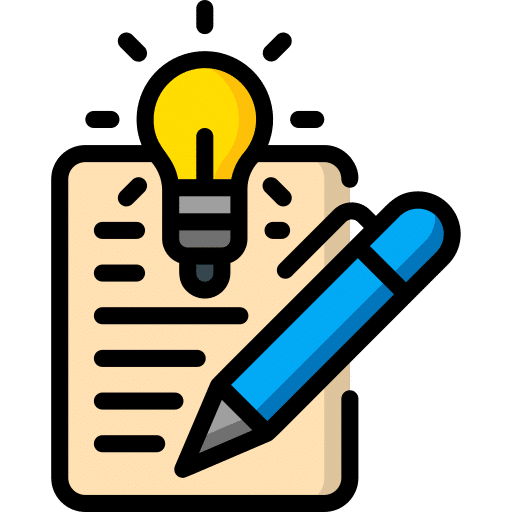
1. Writing techniques and styles: This should include topics such as grammar, sentence structure, tone, pacing, character development, plot development, and more. It's important to help writers develop their writing skills so they can produce high-quality work.
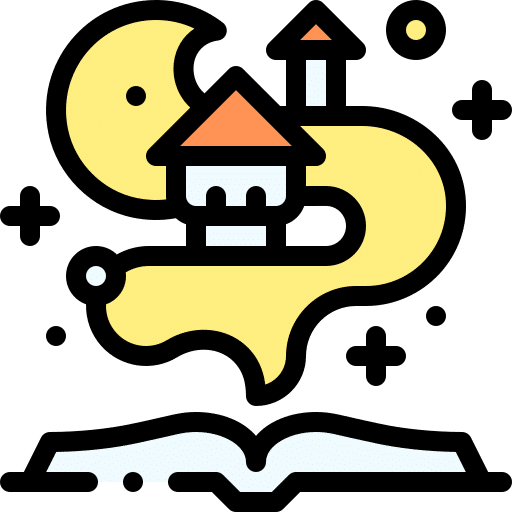
2. Storytelling: Storytelling is an essential aspect of writing, and it's important to teach writers how to tell compelling stories that engage readers, even in the nonfiction genre. This may include teaching the elements of a good story, and how to create tension and conflict.

3. Publishing: Many writers aspire to publish their work, so it's important to teach them about the publishing process. This may include topics such as finding a literary agent, submitting manuscripts to publishers, self-publishing, marketing, and more.

4. Editing and revisions: Editing is a critical aspect of the writing process, and it's important to teach writers how to edit and revise their work effectively. This may include teaching them how to identify and correct grammar and spelling errors, how to improve their writing style, and how to make substantive revisions to their work.

5. Building a platform: In today's digital age, writers need to have a strong online presence. This may include building a website, creating social media profiles, and developing an email list. Teaching writers how to build a platform can help them connect with readers and promote their work.
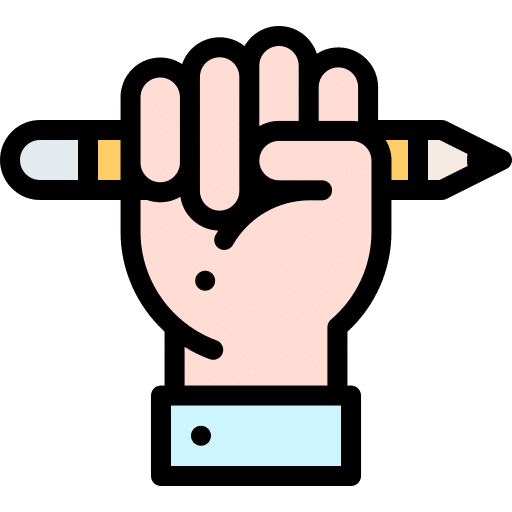
6. Mindset and motivation: Writing can be a challenging and sometimes isolating pursuit, so it's important to help writers develop a positive mindset and stay motivated. This may include teaching them how to overcome writer's block, how to set goals and deadlines, and how to manage their time effectively.
Creativity is an essential part of human expression, allowing us to bring new ideas and perspectives into the world. These are the ways your students can be more productive and find writing to be a rewarding creative process.
As a coach for writers, one of the most important parts of your curriculum should be helping your clients develop effective techniques and strategies for writing. Whether they're just starting out or are seasoned writers looking to improve their craft, several techniques and strategies can help them become more successful in their writing.
Use Prompts and Exercises

Using prompts and exercises can also be an effective strategy for developing your clients' writing skills. These prompts and exercises can be as simple as writing prompts, where you give your clients a specific topic to write about, or more complex exercises that focus on developing specific writing skills, such as characterization or dialogue. By incorporating prompts and exercises into your coaching sessions, you can help your clients develop new writing techniques and strategies that can take their writing to the next level.
As a coach, your role is to guide and support your clients through the writing process, helping them unlock their full potential as writers.
Writing is an art, and like any art, it requires practice, dedication, and a unique style. A writing style is their unique way of expressing themselves through words, and it can set them apart from other writers.
3. A Day In The Life Of A Writing Coach
A day in the life of a coach involves a lot of hard work, dedication, and commitment to helping others achieve their goals. But it's also a fulfilling and rewarding profession that allows you to make a real difference in people's lives. If you're considering a career as a writing coach, take the leap and pursue your passion. The writing industry is vast and ever-changing, making it difficult to navigate, especially for new or aspiring writers who need your help and guidance.
7 a.m. to 10 a.m. First things first, as a coach, it's crucial to start the day with a positive mindset. So, always begin the day with some form of exercise, meditation, or positive affirmations to set the tone for the day ahead. This helps you stay focused and energized throughout the day.
10 a.m. to 11.30 a.m. After the morning routine, a coach would typically dive into their coaching schedule. This involves working with clients one-on-one, conducting group coaching sessions, or facilitating training programs. As a coach, your job is to help individuals and organizations achieve their goals, overcome challenges, and maximize their potential. This involves a lot of active listening, asking powerful questions, and providing guidance and feedback.
Provide constructive feedback Feedback is crucial for any writer looking to improve their craft. As a coach, your feedback should be constructive, specific, and actionable. Avoid general comments like "good job" or "needs improvement" and instead focus on providing specific feedback on what the writer did well, what could be improved, and how to make those improvements.
Encourage the writer to read widely. Reading widely is essential for any writer, as it exposes them to different styles, genres, and perspectives. Encourage the writer to read widely and provide them with recommendations based on their interests and goals. This will help them develop their unique voice and style.
Set realistic goals. Setting realistic goals is important for any writer. Work with the writer to set achievable goals, such as writing a certain number of words each day, completing a first draft by a specific date, or submitting their work to a literary magazine. This will help the writer stay motivated and focused on their writing.
Teach the craft of writing. As a coach, it is essential to teach the craft of writing, including plot development, character building, pacing, dialogue, and editing. Provide the writer with resources such as books, articles, and online courses that can help them improve their writing skills.
Keep it concise: Get to the point and avoid unnecessary explanations or tangents. Readers of self-help, DIY, and coaching books are looking for practical advice and don't want to wade through a lot of extra information.
Use examples: Use real-world examples to illustrate your points and make them more relatable to readers. This can help readers understand how to apply the advice in their own lives.
Break it down. Use headings, subheadings, and bullet points to break up the text and make it easier to scan. This can help readers quickly find the information they need.
Be engaging: Use a conversational tone and write in a way that connects with readers on a personal level. Share your own experiences and insights to help readers relate to the advice you're giving.
Create a supportive writing community. Writing can be a solitary activity, and having a supportive writing community can make all the difference. Encourage the writers to connect with other writers, attend writing workshops and conferences, and join writing groups. This will provide the writers with a supportive community of like-minded individuals who can offer feedback, advice, and encouragement.
You need to guide writers through the book writing process, helping them stay organized, brainstorm ideas, and get their books published, to make intimidating parts of the publishing process simpler and more accessible.
11.30 a.m. to 1.00 p.m. In between coaching sessions, spend the time preparing for upcoming sessions, researching new coaching techniques, and staying up-to-date with industry trends and best practices. This involves reading books, attending seminars and conferences, and networking with other coaches and experts in your field.
1.30 p.m. to 3.00 p.m. Make time for marketing and business development activities. Reach out to potential clients, build relationships with existing clients, and promote your services through various channels such as social media, email marketing, and public speaking engagements.
3 p.m. to 7 p.m. Group Coaching/Individual Coaching. Building a strong relationship with the writer is essential for effective coaching. Take the time to get to know the writers, understand their goals, and what they hope to achieve with their writing. This will help you tailor your coaching to their specific needs and style, and create a comfortable environment where the writer feels safe to share their work and ask for feedback.
7.00 p.m. onwards In the evenings, coaches spend time reflecting on the day's coaching sessions, reviewing client progress, and planning for future sessions. It's also important to take some time for self-care and relaxation, whether it's spending time with family and friends, pursuing hobbies and interests, or simply taking a break to recharge.
How to Gain Eloquence and Flow in Your Communication
You need to be a good listener. You can’t be a good speaker without being a good listener. You have two ears and one mouth. Use it in that proportion.
To be a good communicator, you need words.
Broaden your mind. Consume more audio books, and podcasts, consume a lot of information, and document the notes. Put the information into mind maps. Based on the information, keep building formulas.
Observe and assimilate from your mentor or role models. Model yourself after experts and influencers you admire. Learn effective hooks and punchlines, ways to deliver, and voice modulation.
Write more to gain eloquence in your speech. Some of the best marketers in the world are great copywriters.
Maintain a scrapbook of catchy headlines. Powerful words stir emotions. Save attractive ads to show the way in writing better every day.
Start sharing the knowledge by expressing it in your own words in the form of video and audio content.
Keep practicing. This will help connect the dots and draw out information from past conversations. Eloquence doesn’t come overnight.
Words are the cornerstone of communication. There is no need to use long words to impress your audience. Keep it simple and effective.
You have two ears to listen to others and one mouth to speak. Use them in that proportion.
The best way to learn is to Learn, Do, and Teach. Rome was not built in a day. Nothing in nature blooms all year. Be patient with yourself, Practice, practice, practice in the right direction till you make it.
The method you use to charge for your services can also affect how much you earn. Some writing coaches charge by the hour, while others charge per session or offer packages. It's essential to find a pricing model that works best for you and your clients. The time factor is very important. You have to set goals and be available when your clients need you.
Ways to increase creativity:
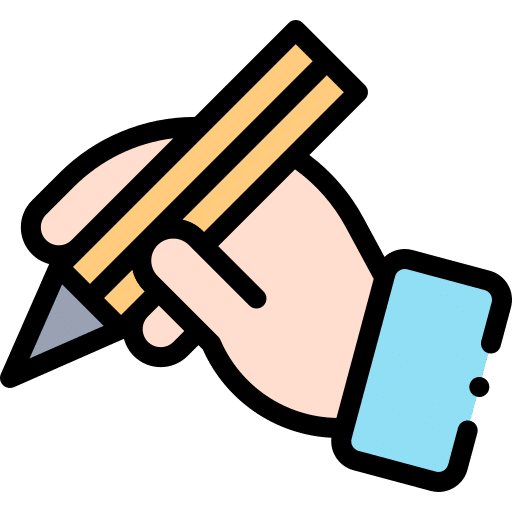
1. Establish a regular writing routine
Your clients can train their minds to be more receptive to creative inspiration, and can also develop the discipline and focus necessary to make steady progress on their writing projects. However, we are all humans, and there are some days when one has the right energy to do stuff. Some days are different, and that's perfectly fine. Just don't be too hard on yourself. Consistency is more about being in the flow and not being rigid or too hard on yourself just because you're not able to finish something at the time that you said that you would do it.

2. Push your mind to generate ideas
Think up 20 ideas that you can put into your life and business, and these ideas can be bucketed into different categories: ideas to improve your health, ideas to improve your wealth, ideas to improve your relationships, ideas to improve your business and your career, and multiple other things, even ideas to improve your creativity. When you're firing those neurons on a day-to-day basis, looking for new ways to think about the same things, that's going to enhance your creative powers.

3. Try different routes in your daily travels
It may seem like an offbeat idea, but let's say you're traveling from one place to another along the same route. You become accustomed to and comfortable with one method, but why not try a different approach? Why not just explore your city and drive to places where you've never driven before? Why not take a few roads where you have never been?
You may find some amazing things because it's like exploring your city. Most of us live in cities, but we just take the regular route. It also keeps your mind sharp to observe what is around you. It also makes it more pleasant when going to uncharted territories.

4. Use your opposite hand when doing any work
If you're right-handed, use your left hand to do more actions. Your nervous system is also connected to the neurons in your mental state. So when you're doing things differently, you're breaking patterns. This fires those sides of the brain that enhance your creative powers and abilities.

6. Motion and movement
So whether you're exercising, running, or walking, you go to the gym. In that state, you get a lot of ideas coming into your head. Motion creates emotion, and emotion enhances your creativity.
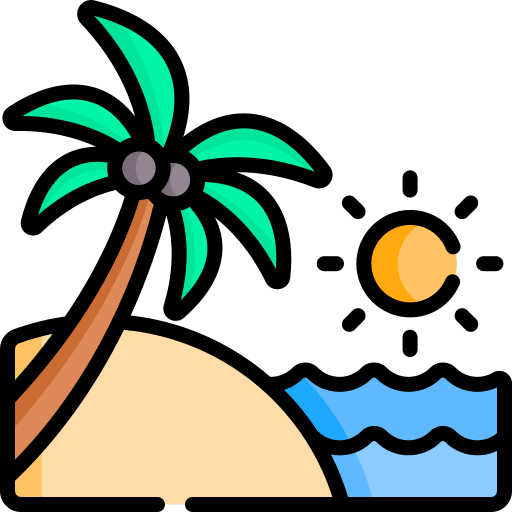
7. Unplug
Have a day where you can completely unplug because sometimes the best work happens outside of work. Book a room in a five-star hotel, and just go stay on your own for one or two nights. And just sit there and just think with a pen and paper, listen to podcasts, and just disconnect from the regular day-to-day activities.
There is a documentary on Netflix about Bill Gates called Inside Bill's Brain. One of his routines when he was heading Microsoft, was to go to a log cabin every three months and just read multiple books for a whole week. He would then come back to work and start to integrate all those different ideas. So it's a very, very powerful thing to unplug yourself.

8. Mastermind with like-minded people
You have one way of thinking, and when you connect with other people, and start to discuss ideas with others, that'll enhance your creativity. As you exchange what's working for each other, keep documenting those ideas in a mind map. And by the end of it, you have tons of ideas from four or five like-minded people every week. You can grow mutually and exponentially.

9. Play video games
As counter-intuitive and offbeat as this may seem, video gaming is one of the best ways to relax and one of the best ways to find new ways to achieve different things. As you conquer all the different levels, you find new and creative ways to complete those levels. Of course, there's a fine line between getting sucked into it and using it as a nice recreation tool.

10. Get inspiration from other industries
Take a look at what other industries are doing and what other people are doing. Go read other magazines, go read other people's blogs from opposite industries, which you may not be familiar with.
4. The Best Tools To Use
There are three concepts to follow before choosing a tool.
1. Don't just pick a tool because it's cheap. "Don't be cheap on your journey to greatness." You want to be great. Don't be cheap. In other words, just because the tool is cheaper, don't pick it. Pick what is best, pick something that has great customer support, and pick something that has been built for that purpose.
2. It is not about the tool. It is about how you use the tool. For example, Photoshop is a tool. Anyone can download Photoshop, but how you design and how you aesthetically use the tool are going to determine the results. You've got to aim for mastering the tools, which is very important.
3. Everyone wants to know about the latest hack or tool, as if the tool were responsible for success. No. 80% of your success is in your internal game, and 15% of your success is in external communication. Only 5% of your success is dependent on the tools.

Social Media
You must have a social media presence when people look for you. You have to have a Facebook page and an Instagram account; you have to have all these things out there, about what you do and how you do it. Don't try to be someone else because you think they're cool. The main thing is to be yourself. And then you're going to attract people who need to hear what you have to say because your journey is unique. Your stories of the obstacles you overcame, the principles that helped you, and the books you read, that's your unique story, and it's different from anyone else's. And so think about being real, authentic, and vulnerable.
You have to be doing Instagram Live and Facebook Live. You have to be recording those. And in order to be in their archive, you must have a Facebook channel or at the very least be doing Facebook videos that people can watch. You must do all of these things as well as write a blog. You can record up to ten minutes of podcasts and share your point of view. You shared something you read in a book last night that touched you. You just read a newspaper account about something that ticked you off; People are interested in learning about new products and services. And you're developing a relationship.
Social media platforms like LinkedIn and Twitter can be used for networking, sharing insights, and promoting coaching services. LinkedIn and Twitter are popular social media platforms that coaches can use to establish their professional brand, connect with clients and colleagues, and share valuable content.

LinkedIn
Create a professional profile with LinkedIn to create a professional profile that showcases your coaching expertise and experience. Your profile should include a professional headshot, a summary of your coaching services, and endorsements from clients or colleagues.

Twitter
Use this to create a professional profile that highlights your coaching services and experience. Your profile should include a professional headshot, a brief bio, and links to your website or blog. Use Twitter to share valuable content related to coaching, personal development, and leadership. You can share short tips, quotes, and links to articles or blog posts. Use hashtags on Twitter to increase your visibility and connect with individuals interested in coaching or personal development. You can use popular hashtags such as #coaching, #personaldevelopment, and #leadership.
Twitter to engage with clients and colleagues in your coaching niche. You can reply to tweets, participate in discussions, and retweet content that may be of interest to your followers.
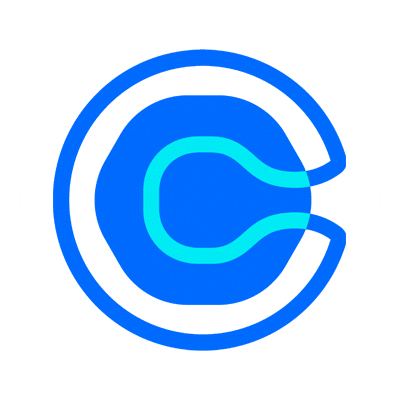
Calendly
It’s a simple tool to set up your meetings and available time slots. You can try this tool out, it starts with a free version. There is an option to sync with Zoom in their premium version. As soon as someone books a time slot with you, a Zoom link automatically gets created and sent to them. This will save you a lot of time. All you need to do is open your calendar and click on the Zoom link to start your meeting.

Mint
If you want to get your personal finances in order and get all your bank accounts integrated into one place, go to mint.com, where you can set up a free account and set your budgets and plan your money management.
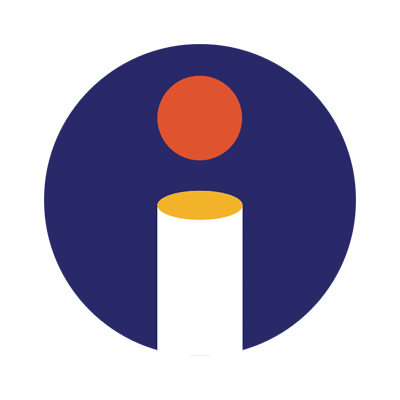

Payment Gateways
While all the above systems are core to your business, it’s never complete until you have your payment gateways set up to make it smoother for you to collect payments and track your sales.
1. Instamojo - If you are based in India, this is one of the best payment collection engines. It’s quite easy to set up your account if you already have your company and bank accounts set up. You can create different products and payment links in this system. Once set up, you can share the payment link with your prospects, where they will be able to make a payment via credit card, debit card, net banking, and other options. The best part is that once the payment is received, you will be able to track all your data on a single dashboard. Additionally, you will also be able to process refunds and send messages to your customers from this platform.
2. RazorPay - One of the best payment collection engines if you reside in India, it has an API integration with other payment engines

Online Survey Tools
Survey tools like SurveyMonkey and Google Forms can be used to collect feedback from coaching clients, assess their progress, and identify areas for improvement.
SurveyMonkey and Google Forms are online survey tools that coaches can use to gather feedback, conduct research, and assess client satisfaction. Conduct client feedback surveys with SurveyMonkey or Google Forms to create surveys that gather feedback from your coaching clients. You can use these surveys to assess client satisfaction, gather testimonials, and identify areas for improvement. You can use these surveys to identify trends, gather data on your target audience, and assess the competition. You can use these surveys to gather information on client goals, preferences, and learning styles.


Project Management Tools
Tools like Trello and Asana can be used for managing coaching projects, setting goals, and tracking progress.
Project management tools are used by coaches to stay organized, manage their coaching business, and collaborate with clients and colleagues. Manage client projects, including coaching sessions, action plans, and follow-up tasks. You can create boards for each client and use cards to organize tasks, deadlines, and progress. Plan and organize content for your coaching business, including blog posts, newsletters, and social media content. You can create a board for each type of content and use cards to plan, draft, and publish that content. Use Trello to manage personal tasks and to-do lists. You can create a board for personal tasks and use cards to organize tasks by priority and deadline.
5. Traditional Vs Self-Publishing
Traditional publishing and self-publishing are two distinct approaches to getting a book into the market.
Traditional publishing involves submitting a manuscript to a publishing house or literary agent, who then works with the writer to edit and refine the book, design a cover, and handle distribution and marketing. The publisher covers the costs of production, and the writer receives a smaller percentage of the royalties from their own work.
Self-publishing, on the other hand, involves the writer taking on all aspects of the publishing process themselves, from editing and formatting to cover design and marketing. This route allows for more creative control and potentially higher royalties, but it also requires a significant amount of time and financial investment on the part of the writer.
Both approaches have their pros and cons, and the choice ultimately depends on the writer's goals, resources, and preferences. Traditional publishing can provide greater visibility and access to industry professionals, while self-publishing allows for more control and potentially higher profits. It's important for writers to do research and weigh their options carefully before making a decision.
One of the biggest advantages of self-publishing is the control that writers have over their work. Self-publishing allows writers to choose their own cover design, formatting, pricing, and marketing strategies. Additionally, self-publishing can be a faster route to getting your work into the hands of readers, as traditional publishing can often take months or even years.
Tips for success in self-publishing
As a writing coach, there are several things you can do to help your students self-publish their work.
Educate them on the self-publishing process: Explain the steps involved in self-publishing, such as editing, formatting, cover design, and distribution. Make sure your students understand the importance of each step and provide resources and recommendations for professional services that can help them.
Guide them on publishing platforms: Help your students identify the best publishing platforms for their work. There are several self-publishing platforms in India that authors can use to publish and distribute their work. Here are a few popular options:
Amazon KDP: Amazon KDP (Kindle Direct Publishing) is a popular platform that allows authors to self-publish and distribute eBooks and paperbacks to readers around the world. Authors can also earn royalties based on sales and borrow through Kindle Unlimited.
Notion Press: Notion Press is an Indian self-publishing platform that offers a range of services, including editing, design, and marketing. Authors can publish eBooks and paperbacks and also have the option to sell their books through the Notion Press online store.
Pothi: Pothi is an Indian self-publishing platform that offers a variety of services, including editing, design, and distribution. Authors can publish eBooks and paperbacks, as well as sell their works, through the Pothi online store.
Educreation Publishing: Educreation Publishing is an Indian self-publishing platform that offers a range of services, including editing, design, and distribution. Authors can publish eBooks and paperbacks, and also have the option to sell their books through the Educreation online store.
Pratishthan: Pratishthan is a self-publishing platform that caters to authors who write in Indian languages. The platform offers a variety of services, including editing, design, and distribution.
It's important to research and compare the different options to determine which platform best meets their needs as a writer
Encourage them to network: Encourage your students to connect with other writers, editors, designers, and other professionals in the self-publishing industry. These connections can provide valuable feedback, support, and advice throughout the publishing process.
Emphasize the importance of marketing: Help your students understand that self-publishing is not just about writing a book, but also about marketing and promoting it. Discuss strategies for building an author platform, such as blogging, social media, and email marketing, and provide guidance on how to develop a marketing plan.
Provide ongoing support: Offer ongoing support and encouragement throughout the self-publishing process. Answer questions, provide feedback, and offer guidance on any challenges that arise.
By helping your students understand the self-publishing process and providing guidance and support throughout the process, you can help them achieve their goals of self-publishing their work.
Invest in professional editing and cover design
While self-publishing gives writers more control over their work, it's important not to skimp on professional editing and cover design. These are two of the most important factors that can make or break a book's success. Consider hiring a professional editor and cover designer to ensure that your work looks and reads as polished and professional as possible.
Build a platform
Building a platform is essential for self-published writers. This includes developing a website, a social media presence, and an email list to connect with readers and promote your work. Consider blogging, guest posting, or offering free content to build your platform and connect with readers.
How To Build An Online Brand That Stands Out And Attract Customers
Click Here to Read more
Develop a marketing strategy
Marketing is an essential component of self-publishing. Consider developing a marketing strategy that includes advertising, book reviews, and promotions. Utilize social media and other platforms to connect with potential readers and promote your work.
Set realistic expectations
It's important to set realistic expectations when it comes to self-publishing. While some self-published writers have achieved great success, many others struggle to sell even a few copies of their work. Remember that self-publishing is a competitive industry, and success takes time, effort, and persistence.
Continually improve your craft
Finally, continually improving your craft is essential for self-publishing success. Take writing classes, attend writing workshops, and seek feedback from other writers and readers. The more you work on your craft, the better your writing will become, and the more likely you are to achieve success in self-publishing.
Editing Tips And Techniques
Writing the first draft of a piece of work is only the beginning of the writing process. Once the initial draft is complete, the writer must begin the process of revision. This process is essential for turning a rough draft into a polished final product.
Use the active voice.
Using the active voice is generally more engaging and effective than the passive voice. When revising, look for opportunities to switch from passive to active voice to make the writing more dynamic.
Look for weak verbs.
Weak verbs can make writing seem dull or lifeless. When revising, look for opportunities to replace weak verbs with stronger, more descriptive ones. This can help bring the writing to life and make it more engaging for readers.
Check for grammar and spelling errors.
While grammar and spelling may not be the most exciting part of the revision, it is important to check for errors to ensure that the writing is clear and professional. Use grammar and spell checkers, but also spend some time reading the text carefully to look for any mistakes that the software might have missed.
By using these additional tips and techniques, you can further enhance the quality of your writing and ensure that it is polished and error-free.
Take a break.
Before beginning the revision process, take a break from the piece of work. Give yourself some time away from it, so that you can come back to it with fresh eyes. This will allow you to approach the revision process from a clear and objective perspective.

Read your work out loud.
One of the most effective ways to catch errors and awkward phrasing is to read your work out loud. This will allow you to hear how the words and sentences flow together and can help you identify areas that need improvement.
Focus on the big picture first.
When revising, it's important to focus on the big picture first. This means looking at the structure of the work, the pacing, and the overall flow. Make sure the piece is organized in a way that makes sense, and that the pacing is consistent throughout. If there are major issues with the structure or pacing, fix these first before moving on to the smaller details.
Trim the fat.
Once the big picture is in place, it's time to start trimming the fat. Look for areas where the writing is verbose or redundant, and cut out any unnecessary words or phrases. This will help make the piece more concise and polished.
Check for consistency.
Consistency is key when it comes to writing. Make sure that the tone, voice, and style are consistent throughout the piece.
Get feedback.
Getting feedback from others is an important part of the revision process. Seek feedback from other writers, readers, or editors to get an objective perspective on your work. This can help identify areas that need improvement and give you fresh ideas for how to approach revision.
Don't be afraid to make major changes.
Revision is not just about making small edits and corrections. Sometimes major changes are necessary to improve the piece. Don't be afraid to make big changes, such as reorganizing the structure, changing the point of view, or even rewriting entire sections of the piece.
Keep in mind that revision is a process, and it may take several rounds of revisions to achieve the desired result. With patience, persistence, and these tips and techniques, you can revise your work effectively and achieve success as a writer.
Launch
Six steps to becoming Amazon's number one best seller
1. FOCUS ON BUILDING THE PRODUCT: First, build products. It is better not to write a book prematurely. Focus on creating more and more success stories.
2. GROW YOUR CUSTOMER BASE: Even if you have over 1,000 paid customers in your paid community, one of those customers will assist you here. Conduct at least 500 one-on-one interviews. These will give you so many insights, clarity, and the right perspective to formulate different types of models.
3. CREATE SOLID CONCEPTS: The concepts in the book can be the result of all your interviews. It can be the outcome of all the successful interviews that you will have with your students. And, after experimenting with and testing various models, the book could become a bible for your micro-niche.
Once you identify the top three leaders and their interviews, it becomes easier to rope in other influencers and other industry leaders. Reach out to them, give them a simple questionnaire [about 10 questions], and tell them about the book that you are writing. Ask them if they would like to be in the book with all these other legends and request that they fill out those questions as your interview and send them back by this date; that ends up becoming other chapters in the book.
At the end of the chapters for each of the influencers and link them back to their websites.
This is a win-win-win for the readers, the person who is contributing to the book (the influencer), and the writer.
When we start to write the first word of the book, we can have a particularly good date for a deadline for the book.
When we start to write the first word of the book, we can have a particularly good date for a deadline for the book.
Most of the students who contributed their blurbs will be the ones who buy the book, and it would be a very special moment for them. The last chapter of the book can be dedicated to these blurbs. All of these small things will make a difference. Thus, this will be like a bible for the sheer volume and extremely valuable content.
6. THE LOGICAL OUTCOME: DOMINATION
You will dominate your micro-niche and become the industry leader. You should be a specialist in your micro-niche area, which will open the door to a plethora of opportunities.
What’s next?
You can get featured in various newspapers.
You can get interviews on other podcasts across India. These podcasts will give you leverage.
